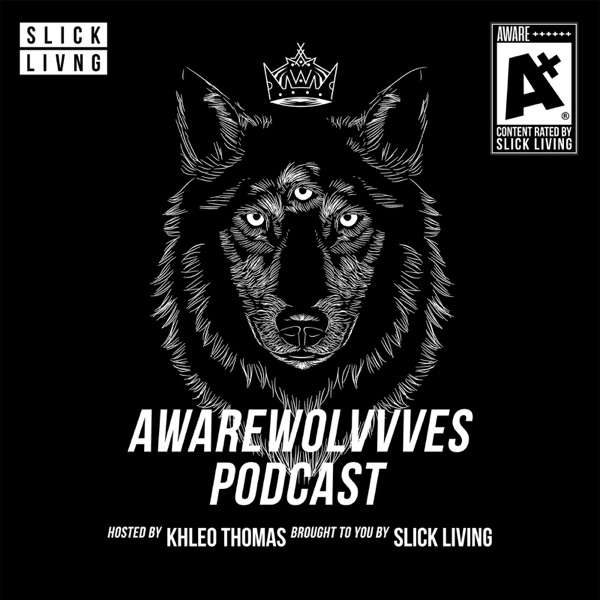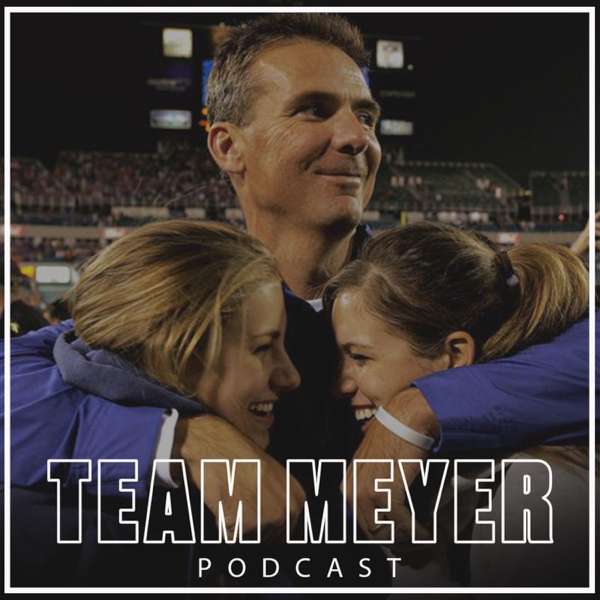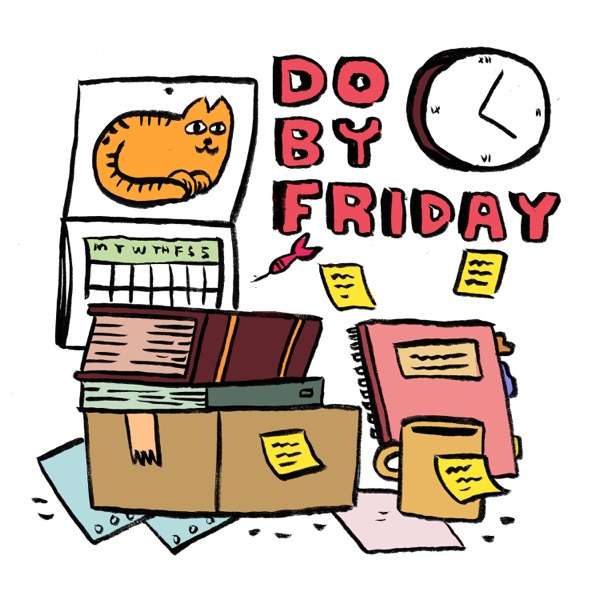Did Elvis die of a heart attack? A drug overdose? Was he murdered? Is he working undercover for the FBI? Did he fake his own death?
The Elvis Presley Conspiracy episode we will uncover information that may lead to any number of possibilities.
The call came to Memphis Fire Station No. 29 at 2:33 p.m. on August 16, 1977. The dispatcher indicated that someone at 3754 Elvis Presley Boulevard was having difficulty breathing. “Go to the front of the mansion, the gate will be open,” the voice said. An ambulance swung out of the station onto Elvis Presley Boulevard and headed south, siren wailing maintaining a high speed.
The two medics manning the ambulance recognized the address right away, it was Elvis Presley’s home, Graceland, three miles south of the fire station. Two years before the medics had come to assist Elvis’s father, Vernon Presley, after he suffered a heart attack and they thought it might be Vernon again.
As the ambulance drove toward Graceland and the gates swung open and the crowd milling around the entrance parted. Making a wide sweeping turn to the left, the vehicle bounced heavily across the sidewalk and hurtled through the entranceway, striking one of the swinging metal gates a clanging blow. One of the several musical notes welded to the gate fell off. The ambulance accelerated up the curving drive toward the mansion and braked hard in front of the two-story, white-columned entrance. Here they were met with one of Elvis' bodyguards.
“He’s upstairs,” the man exclaimed, “and I think it’s an Over Dose.”
They rushed upstairs into Elvis' bedroom and then were pointed towards the bathroom where over twelve people milled about over a body of a man in mismatched silk pajamas—a yellow top and blue bottoms.
At first sight the medics didn’t recognize Elvis. The man was stretched out on his back on the thick red rug with his pajama top open and his bottoms pulled down below his knees.
They noted he was very dark, almost black. One medic thought that he might have been a black man.
“From his shoulders up, his skin was dark blue,” he later told reporters.
A young man was pressing Elvis’s chest rhythmically, while a middle-aged woman gave him mouth-to-mouth resuscitation. The medics swooped in fast and looked for a pulse. They could not locate one. Then they noted that Elvis was very cold, unusually cold and they believed he had been clinically dead for a very long time.
“We think he OD’d,” came a voice from the crowd. The medics determined the best course of action was to take Elvis to the hospital and they retrieved a stretcher and took Elvis out the front door noting that he weighed more than they had anticipated. They claim he weighed between 230-250 pounds.
As they reached the ambulance a green Mercedes-Benz raced up the driveway and lurched to a stop. It was Elvis’s doctor, George Nichopoulos otherwise known as Dr. Nick.
As the ambulance raced down the driveway and up the boulevard Dr. Nick worked desperately on the body, shouting to the dead man not to die. That he could not die. That he had to live, for godsake's live! The doctor performed CPR the whole way to the hospital chanting “Breathe, Elvis . . . come on, breathe for me.”
It is a curious matter, however, that both medics on scene believed that Elvis had been dead for a long while, and yet, the doctor, was performing CPR and trying to revitalize a seemingly dead corpse on route to the hospital. But, let's get back to that later. I just wanted to put that thought in your head as we will examine it further in this podcast.
The ambulance left Graceland at 2:48 and was on route to Methodist South Hospital, only blocks away from Graceland when Dr. Nick ordered the ambulance to drive further another sixteen minutes to Baptist Memorial Hospital. Later it was revealed that Dr. Nick preferred this hospital because they were more discreet in dealing with celebrity patients.
The hospital also maintained a superbly well trained crew of eighteen doctors, nurses, and medical specialists to deal with life-or-death situations. The team worked on Elvis for 20 full minutes before delivering the news that nothing could be done to save Elvis. In fact, some of the team questioned the matter from the very start. He was dead. Very dead and there was no helping a man who had died hours beforehand.
Elvis Presley, the King of Rock n Roll. One of the greatest performers of all time was dead. It was, at the time unbelievable.
And Elvis' estate was in complete chaos. Even before the ambulance called, someone had leaked the death to the media. Witnesses claim that even during this time, some people were walking out with trophies, valuable and with Elvis Memorabilia and Mementos.
However, the police were never called and only participated in the security of Elvis Presley's corpse while at the morgue. They retrieved basic statements from Dr. Nick who would not specify how Elvis died. Dr. Nick went back to Graceland in the afternoon to secure a signature from Vernon Presley, Elvis' father authorizing an autopsy.
The autopsy was conducted by a specially selected and highly skilled team of nine pathologists headed by the hospital’s chief of pathology, Dr. E. Eric Muirhead. Dr. Jerry Francisco, the medical examiner for Shelby County, closely observed the proceedings. It would be his responsibility to declare to the world the official cause of Elvis Presley’s death.
Early on, a meticulous dissection of the body revealed what Elvis did not die from. It was not heart failure, stroke, cancer, or lung disease— the usual killers. It also confirmed what his doctors already knew: Elvis was chronically ill with diabetes, glaucoma, and constipation. As they proceeded, the doctors saw evidence that his body had been wracked over a span of years by a large and constant stream of drugs. They had also studied his hospital records, which included two admissions for drug detoxification and methadone treatments. Over time, Elvis had, in effect, been poisoned. The bloated body, the puffy eyelids, and the constipation reflected the slow death. They prepared multiple specimens from the corpse’s fluids and organs to be identified anonymously and sent to several well-respected laboratories across America for analysis. Chances seemed high that Elvis had, in fact, overdosed.
After Elvis’s body had been wheeled away to the morgue, he told them that Elvis had been pronounced dead at 3:30 p.m., apparently of heart failure. Elvis died of heart failure, suddenly and without warning. It was a crisis that could not have been avoided. No one was at fault in Elvis’s demise. They concluded this without the completion of the pathological report. They further stated that the true cause of death may never be discovered but stressed that drugs had nothing to do with it.
The image of Elvis was intact. Radio stationed played tribute music. His fans, worldwide mourned.
But as the world mourned and fans shocked at the death of the King of Rock N Roll, rumours began swirling about Elvis's last years, his last days, his last night and what was the real cause of his death, or even more bizarre, how he managed to fake his own death.
Vernon Presley was one of the first to question what was really going on. He had distrust of Dr. Nick, of the medical examiners report, of Elvis's friends and staff. He had suspicion that Elvis had been murdered.
And Vernon was not alone.
Elvis' last days were very stressful, not only on himself, but also on his staff and anyone around him. Elvis was not recording in studio any longer and had no movie contracts and was required to continually perform live in order to maintain the lifestyle he and others enjoyed. Whereas a manager and promoter would typically take a 15% cut of profits, Elvis', known as Colonel Tom Parker, took in excess of 50% and was demanding more.
Elvis had not toured outside of the US except for some brief shows in Canada and was looking forward to revitalizing his career abroad, particularly in the UK and Western Europe. He was very stressed about putting the whole show together. He was slightly, but not grossly over-weight. He was tired of himself and depressed and was looking forward to a complete change. He wanted to get back into shape and to make drastic changes in his life including reestablishing a relationship with Priscilla, his ex wife because he missed regular family life with her and their daughter.
It was rumoured, also, that Elvis was about to break up with his current girlfriend Ginger Alden.
As the tour was being planned, Elvis had Vernon fire a few of his long term employees Red West, Sonny West and Dave Hebler because of spontaneous disputes. Elvis had left each with money and they claimed that Elvis planned on hiring them back on, but he was just being stubborn.
But before getting hired back, the three, together with tabloid columnist Steve Dunleavy, wrote a scathing expose of Elvis entitled “Elvis What Happened?”
According to their own accounts, the reasons for writing the book were not for financial gain or revenge, but "to get him to face up to reality and do something about his destructive lifestyle before it was too late".
The book tells the story of Presley's personal life as seen through the eyes of Red, Sonny, and Hebler. It tells of incidents relating to his sex life, drug use, musical career, and his relationship with each of the three men. Names of people written about in the book, for the most part, are changed to respect their privacy, although this has led some to believe that a lack of named sources suggests these people and incidents never really existed.
The book went on sale in July and was not an immediate success. It was only after Elvis' death that the book became popular and went on to sell three million copies.
Not only were these three bodyguards on the outs, it seemed as if others, too, still employed by the Elvis estate were on the outs. Body guards, promoters, band members, everyone was fired or re-hired or didn't know what was going on as the new tour was being put together. Even the Colonel was fired, and re-hired and fired again. Elvis was said to be stressed out and suggested he simply take a whole year off and to relax in either Hawaii or his Palm Springs house.
Some feel that a vengeful employee had slipped Elvis prescription drugs that fateful night that mixed with others he was taking caused a toxic concoction and ultimately death.
If Elvis's death was a crime scene it was not treated as such. The room, and house filled with dozens of onlookers, the police were never called, never inspected, never photographed ....never questioned. The cleaning staff at Graceland meticulously cleaned the bathroom before the ambulance had arrived, and shortly after the body was recovered. The carpet was scrubbed clean. The staff then went to work on the bedroom and dressing rooms in a curious cleanup affair. Why did they need to clean up? Who ordered the immediate cleaning?
Elvis nearly always carried a firearm with him, carried them on stage and in some instances wore bullet proof vests while performing. He was concerned over his safety and obviously did not fully trust his security detail as much as one would.
Others have come to a different conclusion about who was responsible for the murder of Elvis.
Suzanna Leigh was a friend of Elvis' whom she starred in the 1966 film Paradise, Hawaiian Style. For years, she’s been plagued by doubts about his death.
As soon as I saw photos of the aftermath of Elvis’s death, alarm bells went off in my head, she says.
There was a picture of a woman, who was close to Elvis, standing in the doorway at Graceland in the middle of the night, just hours after his death. She looked immaculate, her make-up perfect.
What was wrong with this? Well, if the love of my life had just been found dead, I would have looked like the Witch of Endor, mascara streaming down my face, she continues.
Although we were only ever friends, I had been in love with Elvis since I was 11. My dreams of meeting him came true when I was cast in Paradise, Hawaiian Style. We bonded immediately and became true soulmates.
Elvis, who was very religious, loved my stories about my English convent school.
The first time he took my hand was on set. We only kissed twice but there was the promise of many more intimacies to come. We remained friends throughout my passionate affair with Richard Harris, and wanted to make another movie together — but it was never to be.
Colonel Tom Parker never liked our friendship, mainly because I was introducing him to actors like Richard Harris. Elvis wanted to be a real actor, but Colonel Parker only looked for easy money.
I was asleep in London when Elvis died — having returned to Britain in the Seventies. In the years that followed, I continued my career in England. Then, in 2003, I put my connection with Elvis to use by going to work as a VIP tour guide at Graceland.
It was there that I first heard rumours from people on the estate that Elvis had been murdered. And when I went to the library to find out more, I discovered that many reputable people believed his death — from apparent heart failure, compounded by drug abuse — was not straightforward.
One book pointed the finger at Elvis’s doctor, ‘Nick’ Nichopoulos, who prescribed scores of pills for his hypochondriac patient, although it’s hard to believe he would kill his paymaster.
The most interesting theory was by British journalist John Parker, who claimed there was a Mafia connection.
Then there’s the fact that the post-mortem report will not be available until 2027. Why would the Federal Bureau of Investigation lock documents away if there was nothing to hide?
I soon learned Elvis had in fact been part of one of the largest FBI investigations of the Seventies, codenamed Fountain Pen. Apparently, he had been the innocent victim in a Mafia fraud case involving billions of dollars.
Scores of federal agents worldwide had investigated it, and Elvis was due to give evidence. The FBI was meant to be protecting Elvis when he died.
Despite this, Elvis’s death has never been officially investigated.
The first person I talked to as I tried to understand more about the mystery was Beecher Smith, who had been Elvis’s lawyer.
He told me that as part of the investigation, Elvis and his father were supposed to appear in front of a federal grand jury on August 16, 1977 — the day Elvis died.
My next port of call was George Klein, who had been at school with Elvis. He told me that just before his death, Elvis, who was a mess because of his hectic workload, had decided to take a year off and had sacked half his staff, including Colonel Parker.
When he sacked his band, tempers were running so high that they brought out a salacious book about him just two weeks before he died. It all got so nasty that Elvis was forced to employ a team of security people who were all ex-cops, headed by Dick Grob, a former police sergeant.
George told me Elvis was so serious about giving up work that he had rented a house in Hawaii and planned to get fit again.
To find out more, I went to see Grob. Though upset when talking about it all, he confirmed that Vernon, Elvis’s father, always believed his son was murdered.
When Elvis died, Grob had launched his own investigation, questioning everyone in the house as to where they were that night, and logging every call.
He claims records show someone phoned a newspaper from Graceland at 1am to alert them that there was a big story coming out that night — an hour before emergency services were called.
Then he made a truly extraordinary allegation. ‘Elvis died of a massive codeine overdose,’ he told me. ‘It doesn’t matter what other things they say he died of — that is what he really died of.’
I could hardly believe what I was hearing. I knew Elvis was allergic to codeine, an opiate painkiller. Could someone have tricked him into ingesting it?
Grob explained that the madness on the night Elvis died meant that nothing was properly investigated. ‘There was pandemonium in the streets, with distraught fans and journalists arriving from all over the world,’ he said. ‘There were about 200,000 people outside the gate.
‘If the police had said they suspected Elvis had been murdered, there would have been a lynching. The police tried to get a handle on things, but so much stuff was walking out the door. A lot of things disappeared that night and were sold later.
‘Someone even washed the carpet where Elvis had fallen. Imagine that — cleaning up before the police arrived? It could only have been someone really close to Elvis that could have ordered that.’
George Klein had told me that many suspicions were focused on Colonel Parker. Beecher Smith, meanwhile, said Parker had a lot to gain from Elvis’s death — only a day after the death, he had persuaded the singer’s father to sign over to him 50 per cent of The King’s posthumous earnings.
The news about Colonel Parker didn’t surprise me. I had never liked him. Yet though there were a lot of incentives for him to dispatch his protege, he wasn’t there that fateful night.
So how did Elvis die?
In Dick Grob’s opinion, it was organised by the Mob. He told me they did not want Elvis or his father to appear in court because of all the media interest it would create, so they must have got someone inside the house. ‘That’s what Vernon believed all along,’ said Dick. ‘Someone from inside let the killer into the house.’
This was explosive stuff, and I suspected I was on the right track because odd things started happening to me. First, a wheel fell off my truck while I was driving.
If I had been going faster, I could have been killed. A mechanic I saw afterwards said the nuts on the other wheels were also about to come off. Somebody had been messing with them.
Then, one night as I was walking my dog, I stood like a rabbit in the headlights while a young black girl, not more than 20, stuck her arm out of the window of a passing car and fired at least five very loud shots from a handgun, which hit some trees above me.
On another occasion, someone broke into my car, then someone tried to break into my house and stabbed one of my other dogs.
To this day, I suspect someone wanted me out of the way. I didn’t wait to find out who before I left town.
I know people will find it hard to believe these claims, but I knew the real Elvis, and after what’s happened to me I’m more convinced than ever that we are a long way from discovering the full truth about his death concludes Suzanna Leigh.
Others are also convinced that something strange happened that fateful night, but their interpretation of events conclude that Elvis was not murdered, in fact, they believe Elvis did not die at all.
Detective Mulder, from The Xfiles Television program sums it up.
Yes, some believe people believe that Elvis Presley fooled us all either to exit the entertainment industry in good terms, relatively good looking and technically the King or to go into hiding due to his undercover work with the Drug Enforcement Agency of the United States.
There is no doubt, Elvis was fascinated by law enforcement, and even as a child wanted to be a police officer. He collected badges from several police departments and agencies.
The most requested item in the US National Archives – more popular than the photos of the moon landing, the Declaration of Independence and the Bill of Rights is the iconic image shows the meeting between the president and the King: the real-life encounter between Elvis Presley and President Nixon in the Oval Office in December, 1970.
On a American Airlines flight to Washington DC, Elvis – who rarely wrote – requested notepaper and proceeded to pen a letter to the president, offering “any service I can to help the country out” and requesting to be made “a federal agent at large”.
Elvis explained the reason for his visit: his desire for a badge from the Bureau of Narcotics and Dangerous Drugs. The singer was a collector of police badges and believed this one would give him the special powers and freedom of a federal agent. Nixon granted his wish for a badge, and the meeting concluded as Elvis put his arm around the president and hugged him.
Was Elvis a real undercover agent? Or was this just a fantasy he believed to be true? There are reports that Elvis had in fact used badges and represented himself as a lawman. In one instance he even had a hand held police siren and chased down a speeding motorist and warned the driver against excessive speed, but pardoned him and didn't issue a ticket. The motorists, totally flabbergasted, drove off.
There is also a time, Elvis stopped a plane on the runway using his Narcotics Badge to pursue his employee Hamburger James, whom he had learned was stealing jewelry from Elvis. On the plane, Elvis read his best version of the Miranda Rights and the Memphis Mafia, Elvis' bodyguards take James back to their hotel room. Elvis smacked James in the face twice and then started crying asking James why he did not just let him know he needed money. Elvis said he would keep him on as an employee, but James declined and was paid a severance package, never to deliver Hamburgers to Elvis again.
But what if Elvis just wanted to hide away? Elvis was too big a star and Graceland was too small for that.
There are some people that believe that Elvis is in hiding at Cooper Creek Baptist Church in Denton, Texas cleverly disguised as Pastor Bob Joyce. Bob Joyce bears a remarkable likeness to Elvis and is exactly the same age as Elvis would be if still alive. He can play the piano effortlessly and has a phenomenal singing voice that is uncannily like Elvis. The Pastor is even said to have the same scars as Elvis. In a later interview with Pricilla when asked, what would Elvis be doing if he were alive today, she answered: "ELVIS WOULD BE PREACHING, HE LOVED TO PREACH AND HE LOVED THE BIBLE"!
In the 1980s a recording surfaces reportedly from the King himself describing his current lifestyle. The recording shocked Elvis fans from around the world as they learned that Elvis was still alive, in the witness protection program. Let's have a listen:
However, upon further investigation we learn that the clip was commissioned by a film crew for a sensationalistic documentary and that a known Elvis impersonator voice acted the entire sequence.
There are many, however, that believe they have not only heard Elvis, but have seen him also. In Ottawa Canada, there have been so many Elvis sightings that a group was formed to study the phenomenon The Elvis Sighting Society. They even had an unnamed roadway named Elvis Lives Lane and even documented Elvis order a Double Double at Tim Hortons.
We can laugh, because, that is what Elvis would have done. But if we take a serious look into the last night of Elvis' life we have a great deal of unanswered questions that may lead you to believe any number of conspiracies.
Elvis was overweight and was taking prescription pills to help him stay awake when needed or to fall alseep. He was supervised by a host of doctors, but mainly observed by Dr. Nick. Even though his weight was not ideal, he was not obese and even though his diet was typically southern, he was not, as the media portrays, gluttonous. Even the famed fried peanut butter banana sandwich story is, well, myth.
In his last hours, Elvis played racketball, an intensely gruling sport that requires not only mental focus but an insane about of cardio. After playing racketball, Elvis sat down at the piano and finished with Blue Eyes Crying in the Rain.
As he rested in bed, he found he could not sleep and requested a medical aid. Still, with no help, he requested additional support in the form of more pills.
Unable to still sleep, he took a book with him and sat down on the toilet to read.
Later, his girlfriend Ginger Allen found him slumped on the floor, apparently dead.
The official cause of death was noted as heart failure. Years later an investigation shows us that perhaps drugs had a bigger influence his death. Dr. Nick was brought before the Tennessee Board of Medical Examiners on several charges related to overprescribing drugs to Elvis Presley and other patients. In January 1980, the board suspended his license for three months for indiscriminately prescribing and dispensing controlled substances to ten people, including Elvis and Jerry Lee Lewis. In November 1981 Dr. Nick was officially charged in a criminal court with 11 felony counts of overprescribing drugs to nine patients. He was acquitted. Five new charges were brought against him in 1992 by the state of Tennessee for overprescribing drugs to Elvis. This time, the State Department of Health was determined to revoke the doctor's medical license permanently.
But Dr. Nick brought forth another theory. Dr. Nick said that after the autopsy he noted that Elvis mostly likely died because he was full of shit and often had accidents on stage where he would literally crap his pants and have to change into different clothes. According to Dr Nick, the autopsy found Elvis’s colon to be five to six inches in diameter, compared to an average of two to three inches. And rather than the standard four to five feet long, Elvis's colon was eight to nine feet. He determined that Elvis's weight gain, was not body fat, but at least a 20 pound turd stuck in his colon.
Now this new theory hold little weight, as we are simply taking Dr. Nick's word on it and his experts in the field, which he says talked on the phone with him and made these conclusions.
Dr. Nick died in 2016, and its probably a good thing because if Elvis were alive today, he probably would have fired up the Lisa Marie, flew up to 30,000 feet above Memphis and threw the bastard out the door.
Elvis, in a sense does live, forever. His mark, his music, his way, not only is revered worldwide it echoes in music throughout time. Everyone is an Elvis fan, whether they know it or not.
If you are interested in learning more about Elvis, and the many conspiracies concerning his death and life visit the facebook group Evidence Elvis Presley Is Alive.
Hosted on Acast. See acast.com/privacy for more information.

 Our TOPPODCAST Picks
Our TOPPODCAST Picks  Stay Connected
Stay Connected







